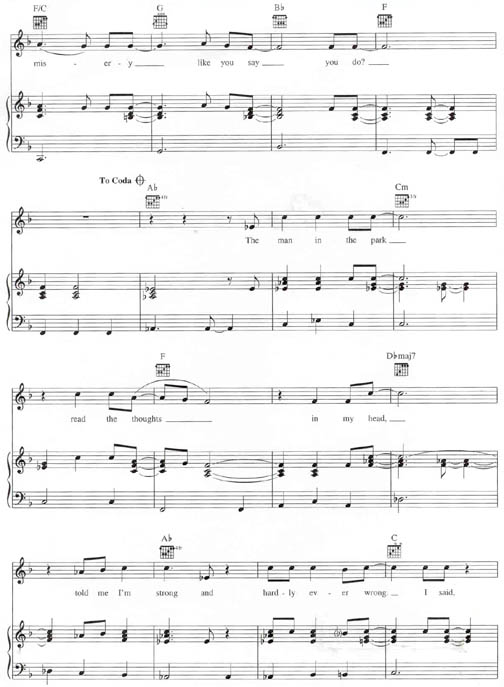


But if there’s any song in Smith’s catalog that deserves to be viewed through this lens, it’s this knockout on From a Basement on a Hill. Maybe it’s because Smith’s emotions are so complicated by beauty and pop trappings that Jawbreaker just doesn’t really jump to mind. We don’t usually hear Elliott Smith’s music referred to as emo, despite his fellow travellers’ fascination with depression, confession and death. But listeners know one thing for sure: “You oughta be proud I’m getting good marks” is one of the saddest statements Smith ever made, turning the needle tracks on his arm into a sick joke meant to reject anyone who would try to help him. There’s the question of who’s being burned when Smith turns the “s” in “marks” into a sharp hiss. There’s the uncomfortably long down-stroke held on a single note at the end of the instrumental bridge. There’s the momentary drumming that comes from nowhere mid-song and then suddenly stops never to return. In spite of being one of his most familiar songs, “Needle in the Hay” is remarkably strange.

The opening track off his breakthrough record is one of the quietest rock songs ever, a passive-aggressive classic that follows in the footsteps of Lou Reed’s heroin chronicles but adds a brutal subtext that hints at the disturbing motivations of the addict. “He’s wearing your clothes, head down to toes a reaction to you.” Welcome to Elliott Smith, the album and the person.

And so, here are the 12 best songs by Elliott Smith. We should’ve had so much more from Smith but what we do have is more than enough to make him a permanent addition to the classics. This list also takes into consideration songs from his three posthumous releases, even though they may not have been fully completed. Over the course of his too-short career, Smith released five solo albums. Yet, like his British counterpart, Smith suffered often-debilitating addictions that yielded some of the most vulnerable music of the era, but also inconsistent live performances. Smith followed in the lineage of folk-ish singers like Harry Nilsson and Nick Drake by blending melodic sensibilities that bowed to the Beatles with lyrics that eschewed popular convention. But the main reason Smith has endured is because of his impeccable craftsmanship all across his catalog and extending deep into his archives of material unreleased in his lifetime. Thanks in part to the loving curation of the label Kill Rock Stars, a few interesting biographies, covers of his work by prominent artists and a stirring documentary Elliott Smith: Heaven Adores You, released last year, more and more sad souls have discovered Smith’s emotionally revealing music. With each passing year since his tragic death in 2003, Elliott Smith’s stature has continued to grow.


 0 kommentar(er)
0 kommentar(er)
